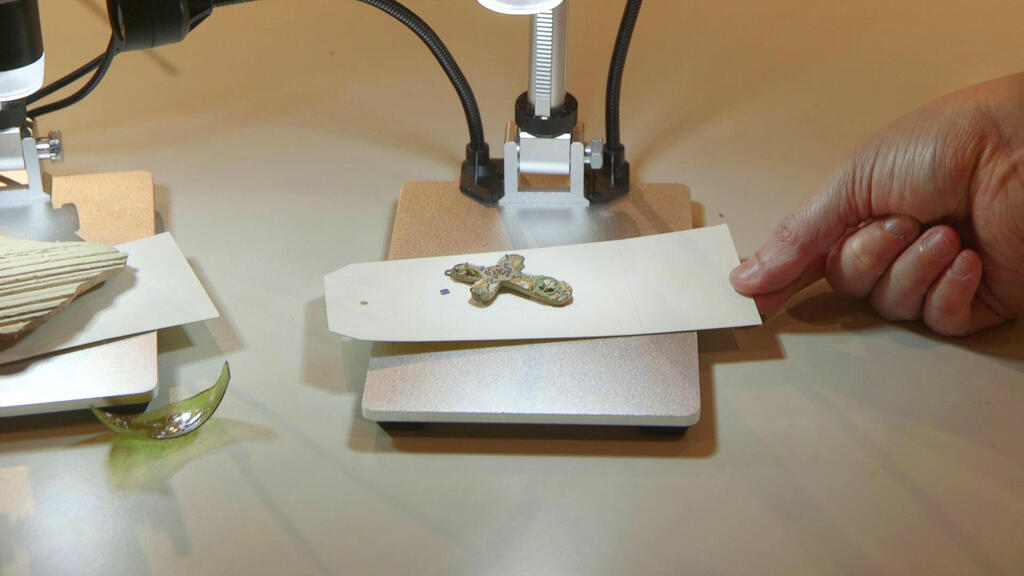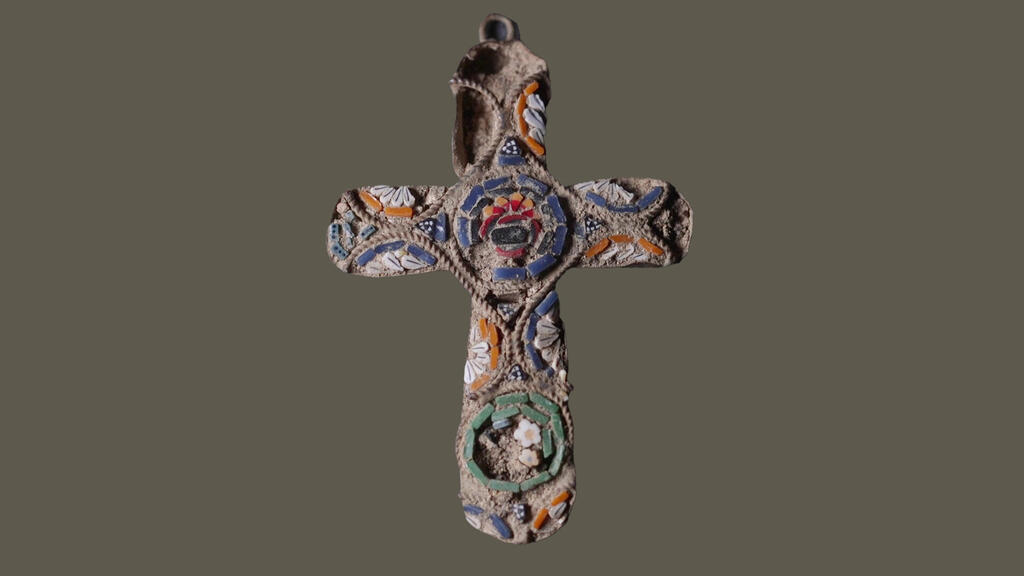Getting your Trinity Audio player ready...
Nehorai Nir, a 10-year-old school boy from Jerusalem, was on a field trip to the Ein Karem neighborhood of the city when he discovered a unique cross pendant, believed to be around 100 years old.
"We were collecting edible plants, and suddenly, I saw a red pomegranate lying on the ground," Nir recalled. "I ran over to pick it up, but there was a worm in it, so I left it behind. On my way back, I noticed something colorful sticking out of the ground. I pulled it out and was really excited. I was told to call the Israel Antiquities Authority, and when they arrived, they were thrilled."
The 100-year-old cross pendant
(Video: Israel Antiquities Authority)
The artifact, a stunning cross pendant made using micro-mosaic technique (tiny mosaic pieces), was examined by Dr. Amit Raam, an archaeologist from the Jerusalem Region at the Israel Antiquities Authority. "Although the cross pendant is not considered ancient according to the law, since it is only about 100-200 years old, it is a special and eye-catching object," Dr. Raam said.
"The technique used to create the pendant is a masterpiece, involving the meticulous placement of tiny colored glass and gemstones to form miniature designs. This technique developed in Rome around 1800, and possibly earlier, and continued into the early 20th century."
Ein Karem is considered a sacred site for Christians, identified with "the City of Judah" – the place where, according to the New Testament, John the Baptist was born, and where his mother, Elizabeth, met Mary, the mother of Jesus, while both were pregnant. The encounter is believed to have occurred near a spring in the neighborhood, which still exists today and is associated with the biblical story.
<< Get the Ynetnews app on your smartphone: Google Play: https://bit.ly/4eJ37pE | Apple App Store: https://bit.ly/3ZL7iNv >>
ARCHAEOLOGICAL DISCOVERY IN JERUSALEM
(ILTV)
The two main churches in Ein Karem – the Church of the Visitation and the Church of St. John – have long been pilgrimage destinations for Christian visitors from Europe on their way to Jerusalem’s Old City.
"This cross is a testament to the personal story of a pilgrim who visited Ein Karem 100-200 years ago and reflects the centrality of the Holy Land to all three monotheistic religions," Dr. Raam added. "People were willing to cross deserts, mountains, and seas, sometimes for years, just to touch the land where it all began. It’s possible the cross came with a pilgrim from Europe and fell during their journey, or perhaps they bought it here in Jerusalem."
As Nir recounted the discovery, one could almost picture the moment the pendant fell, only to be found by the child nearly a century later.
"I want to thank Nehorai for his vigilance and quick report of the pendant’s discovery," said Eli Eskosido, director of the Israel Antiquities Authority. "This exciting discovery, made during the Christmas season, highlights Ein Karem and the Holy Land as a central point in the history of Christian pilgrimage. Through this small but unique artifact, we are exposed to a fascinating personal journey that connects us to the region's past and the world of its pilgrims."






